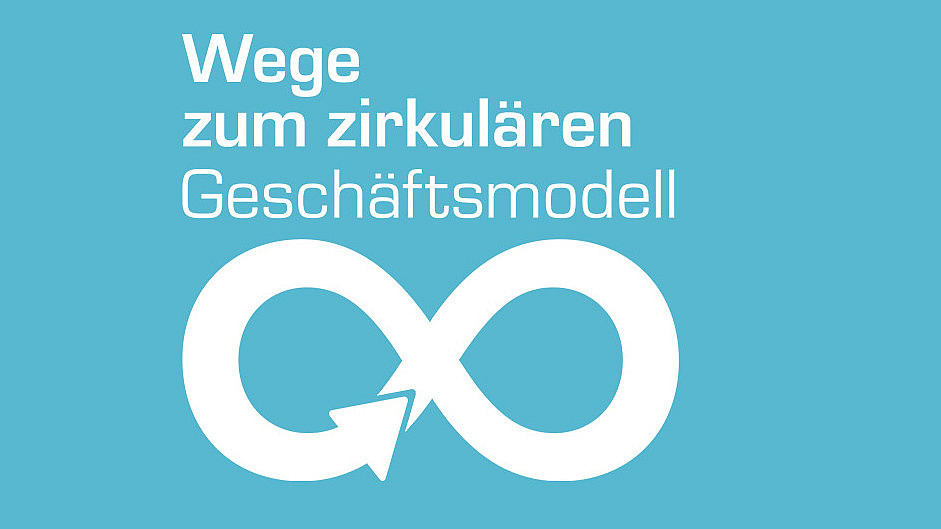New circular economy project: How do linear companies become circular?

"The cabinet has just adopted a national circular economy strategy. Our project is just in time, because the strategy now needs to be filled with life. There are already companies with circular business models, but the transition is not easy. We want to show that the circular economy can work, how companies can transform their linear business models into circular ones and learn from each other in the process," says Philipp Andree, Managing Director of Klimaschutz-Unternehmen, describing the basic idea behind the project. In practice, companies often fail due to conflicting goals between climate protection and the circular economy: "When companies develop efficient and durable products, they extend their useful life and reduce the emissions of buyers. They are therefore doing something good for the climate. But if these long-lasting products sell well and they produce more, their emissions increase. Companies that have absolute reduction targets such as science-based targets then have a problem. This is because they have to reduce their emissions even if they produce more. They therefore jeopardize the targets they have set and had checked and, in the worst case, even their reputation as pioneers in climate protection," says Prof. Jens Hesselbach, head of the upp.
Over the course of 18 months, the project partners work with the companies to analyze why climate protection and the circular economy often mean conflicting goals for them and discuss possible solutions. Individual recommendations for converting their business models to a circular economy are developed for the project companies. General recommendations for action for other companies and sectors will be derived from this and a digital decision-making tool will be programmed for all companies that want to transform their business models into circular ones.
"We belong to the textile industry and are therefore one of the first for which digital product passports (DPP) will become mandatory. We are already collecting some of the data required for such data records, but we see problems with widespread implementation for pillows and towels for hotels. We want and need to exchange ideas and network with other sectors so that the circular economy works for us and has greater leverage," says Beate Schäfer, Managing Director of Schäfer Mietwäsche, which washes, repairs and rents out laundry and workwear. ZINQ protects steel with zinc surfaces against corrosion and relies on a circular business model. Managing Partner Lars Baumgürtel explains his motivation for joining the project: "Raw materials are very valuable. Using them efficiently is not enough for us. If we want to secure raw materials, operate in a climate-neutral and circular way, we need to develop our products further. We need durable and reusable products. For us, the circular transformation is a joint task that promotes innovation, synergies and cooperation. In the project, we want to work with our partners to develop recommendations for the creation of circular lead markets in order to make sustainable, recyclable products more competitive than they are today. Digital product passports can be a key to this."
These 13 companies are participating in the "Paths to a circular business model" project
- allsafe GmbH & Co KG*(production of charging fuses)
- CHEP Deutschland GmbH*(production and rental of pallets)
- easycircular Umweltmanagement GmbH (consulting and management of waste and material flows, take-back system)
- ebm-papst Mulfingen GmbH & Co. KG*(production of fans and drives)
- fischerwerke GmbH & Co. KG*(production of fastening systems such as dowels)
- KESSEL SE + Co KG*(production of drainage solutions for waste water)
- MPG Mendener Präzisionsrohr GmbH*(production of copper-alloyed heat exchanger tubes)
- Phaeosynt GmbH (production of vegan antibodies for pregnancy tests etc.)
- Pöppelmann GmbH & Co KG*(production of plastic and packaging solutions)
- Schäfer Mietwäsche Service GmbH (laundry, repair and rental of hotel and restaurant textiles and workwear)
- Schöck Bauteile GmbH*(production of construction elements for thermal insulation, impact sound insulation, reinforcement technology)
- Veolia Holding Deutschland GmbH*(waste disposal, energy and water supply)
- ZINQ GmbH & Co.KG*(galvanization of steel and metal components)
* Climate protection company
You can find out more about the project here.
Contact:
Klimaschutz-Unternehmen e. V.
Nina Goßlau
Project manager
Phone: 0171 84 20 199
Email: gosslau[at]klimaschutz-unternehmen[dot]de
University of Kassel
Institute for Production Engineering and Logistics
Department of Environmentally Sound Products and Processes (upp)
Nadja Buchenau
Project manager
Phone: 0561 804 34 42
Email: buchenau[at]upp-kassel[dot]de
Klimaschutz-Unternehmen e.V. is a cross-sector network of companies in the German economy that is committed to achieving Germany's climate policy goals with innovative solutions. Founded on the initiative of the Federal Ministry for the Environment (BMUV), the Federal Ministry of Economics and Climate Protection (BMWK) and the German Chamber of Industry and Commerce (DIHK), it now includes 69 companies of all sizes. www.klimaschutz-unternehmen.de
The Department of Environmentally Sound Products and Processes (upp) at the University of Kassel works on various research and industrial projects in the fields of energy and resource efficiency, decentralized and renewable energies, climate protection and climate strategies. This includes the collection, evaluation and benchmarking of energy data, flexible energy supply and load management as well as climate protection concepts. www.upp-kassel.de